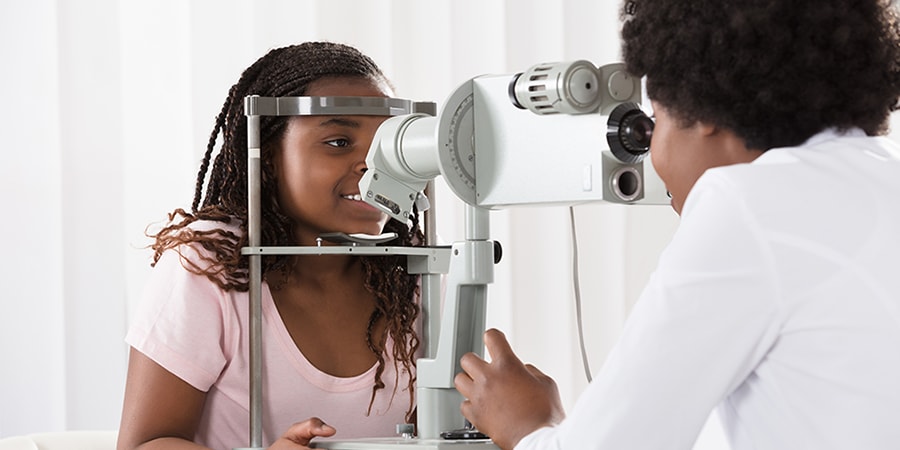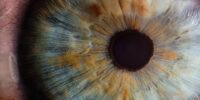Why Comprehensive Eye Exams Are Different From Vision Tests

This article aims to explore the distinctions between comprehensive eye exams and vision tests.
It begins by discussing the purpose of comprehensive eye exams and emphasizing their significance.
Next, it delves into the differences between vision tests and eye exams, highlighting the limitations and benefits of each.
The article also provides an overview of what individuals can expect during a comprehensive eye exam, emphasizing the importance of regular exams for identifying and preventing eye conditions.
Finally, it touches upon the importance of selecting the right eye care professional.
Key Takeaways
- Comprehensive eye exams assess overall health of the eyes and detect potential vision problems or underlying medical conditions.
- Vision tests primarily determine visual acuity and the need for corrective lenses.
- Comprehensive eye exams evaluate various eye structures and functions, while vision tests focus on determining clarity of vision and appropriate prescription.
- Regular comprehensive eye exams are important to monitor visual health, detect potential eye conditions, facilitate early intervention and treatment, and prevent the development of serious eye problems.
The Purpose of Comprehensive Eye Exams
The purpose of comprehensive eye exams is to assess the overall health of the eyes and detect any potential vision problems or underlying medical conditions. These exams are crucial in ensuring early detection of eye conditions, as they can help prevent further deterioration of vision and potentially save lives.
Early detection is particularly important because many eye conditions, such as glaucoma and macular degeneration, do not exhibit obvious symptoms in their early stages. By detecting these conditions early, appropriate treatments can be initiated to prevent vision loss or manage the condition effectively.
Common eye conditions that can be detected during comprehensive eye exams include cataracts, diabetic retinopathy, and dry eye syndrome. Treatments for these conditions may range from prescription eyeglasses or contact lenses to surgical interventions or medication.
It is through comprehensive eye exams that these conditions can be identified, leading to timely and appropriate interventions.
Understanding the Difference: Vision Tests Vs. Eye Exams
This discussion aims to explore the purpose of vision tests and eye exams, as well as the scope of examination involved in each.
Understanding the difference between these two types of assessments is crucial in determining the appropriate course of action for individuals seeking eye care.
Purpose of Each Test
One key distinction between comprehensive eye exams and vision tests lies in the purpose of each test.
The purpose of a vision test is to assess an individual’s visual acuity and determine their need for corrective lenses. It typically involves reading an eye chart and identifying letters or numbers at a specific distance. While vision tests are helpful in determining the need for glasses or contact lenses, they do not provide a thorough evaluation of the overall health of the eyes.
On the other hand, the purpose of a comprehensive eye exam is to assess not only visual acuity but also to evaluate the health of the eyes, detect any potential eye diseases or conditions, and monitor any existing conditions. Comprehensive eye exams provide a more comprehensive and holistic approach to eye care, allowing for early detection and treatment of eye conditions, and can help to prevent or minimize vision loss.
Therefore, while vision tests are useful for determining the need for glasses, comprehensive eye exams offer additional benefits by ensuring the overall health and well-being of the eyes.
Scope of Examination
A key aspect to consider when comparing comprehensive eye exams and vision tests is the scope of examination. While vision tests primarily assess visual acuity and the need for corrective lenses, comprehensive eye exams delve deeper into the overall health of the eyes.
These exams involve a variety of diagnostic procedures to evaluate the various structures and functions of the eyes, including the cornea, iris, lens, retina, and optic nerve. The depth of examination provided by comprehensive eye exams allows for the detection and monitoring of various eye conditions and diseases, such as glaucoma, cataracts, macular degeneration, and diabetic retinopathy.
In contrast, vision tests mainly focus on determining the clarity of vision and the appropriate prescription for glasses or contact lenses.
What to Expect During a Comprehensive Eye Exam
During a comprehensive eye exam, patients can expect a series of specialized tests and evaluations to assess their visual health and detect any potential eye conditions or diseases. The expectations for a comprehensive eye exam are much broader than those for a simple vision test.
Common procedures performed during a comprehensive eye exam include visual acuity testing, which measures how well a person can see at different distances, and a refraction test to determine the appropriate prescription for glasses or contact lenses. In addition, assessments of eye muscle function, peripheral vision, and depth perception may be conducted.
The examination also involves an evaluation of the health of the external and internal structures of the eye, including the cornea, lens, and retina. These comprehensive evaluations enable optometrists or ophthalmologists to identify any abnormalities or potential eye conditions early on, allowing for timely intervention and treatment.
The Importance of Regular Eye Exams
Regular eye exams play a crucial role in monitoring visual health, detecting potential eye conditions, and facilitating early intervention and treatment. They are important for individuals of all ages, as they can help identify and prevent various eye conditions. Here are three key reasons why regular eye exams are important:
- Early detection: Regular eye exams allow eye care professionals to identify eye conditions in their early stages. This enables early intervention and treatment, which can help prevent the progression of these conditions and minimize their impact on vision.
- Prevention: By identifying eye conditions early on, regular eye exams can help prevent the development of serious eye problems. This is particularly important for conditions such as glaucoma or age-related macular degeneration, which may not have noticeable symptoms in their early stages.
- Monitoring visual health: Regular eye exams allow eye care professionals to monitor changes in visual health over time. This is important for detecting any deterioration or changes in vision, and for ensuring that appropriate measures are taken to maintain optimal eye health.
Identifying and Preventing Eye Conditions Through Exams
Identifying and preventing eye conditions can be facilitated through the use of specialized examinations conducted by eye care professionals. These examinations go beyond simple vision tests and aim to detect common eye conditions early on, allowing for timely intervention and treatment. By conducting comprehensive eye exams, eye care professionals can assess visual acuity, evaluate the health of the eye structures, and identify any abnormalities or signs of eye diseases. Preventative measures for eye health, such as regular eye exams, can help in the early detection and management of conditions like cataracts, glaucoma, and macular degeneration. Additionally, eye care professionals can provide advice on maintaining good eye health, such as proper nutrition, wearing protective eyewear, and avoiding excessive digital screen time.
| Identifying Common Eye Conditions | Preventative Measures for Eye Health |
|---|---|
| Cataracts | Regular Eye Exams |
| Glaucoma | Proper Nutrition |
| Macular Degeneration | Protective Eyewear |
| Avoiding Excessive Screen Time |
Vision Tests: Limitations and Benefits
One important aspect to consider when evaluating the effectiveness of vision tests is their limitations and benefits in accurately assessing visual acuity and detecting eye conditions. It is crucial to understand the constraints and advantages of vision tests to ensure accurate diagnoses and appropriate treatment plans.
Limitations of vision tests:
- Limited scope: Vision tests primarily focus on measuring visual acuity and refractive errors, neglecting other aspects of eye health.
- False negatives: Vision tests may fail to detect certain eye conditions, leading to a false sense of security.
- Inadequate for complex cases: Vision tests may not provide sufficient information for diagnosing complex eye conditions that require a comprehensive examination.
Benefits of vision tests:
- Accessibility: Vision tests are widely available and affordable, making them accessible for a larger population.
- Early detection: Vision tests can identify common eye conditions at an early stage, allowing for timely intervention and prevention of further deterioration.
- Efficiency: Vision tests provide a quick and convenient way to screen for visual acuity, making them valuable in large-scale screening programs.
Understanding the limitations and benefits of vision tests is essential for healthcare professionals to make informed decisions about when to use them and when to refer patients for comprehensive eye exams.
Choosing the Right Eye Care Professional for Your Needs
When selecting an eye care professional, it is crucial to consider their expertise and qualifications.
Expertise refers to the depth of knowledge and skills possessed by the professional in the field of eye care.
Qualifications, on the other hand, pertain to the educational background, certifications, and licensure of the professional.
Additionally, it is important to explore the specialized services offered by the eye care professional as these services can vary widely and may be tailored to specific needs such as contact lens fitting, pediatric eye care, or management of ocular diseases.
Expertise and Qualifications
The expertise and qualifications of the healthcare provider conducting the comprehensive eye exam distinguish it from a simple vision test. These professionals have undergone extensive training and education to develop a deep understanding of the complex structure and functioning of the eyes.
Here are three key reasons why their expertise and qualifications are crucial in conducting comprehensive eye exams:
- Specialized Knowledge: Healthcare providers conducting comprehensive eye exams possess specialized knowledge in various areas such as ocular anatomy, physiology, and pathology. This allows them to detect and diagnose a wide range of eye conditions and diseases.
- Advanced Diagnostic Techniques: These professionals are trained to use advanced diagnostic equipment and techniques to thoroughly assess the health of the eyes. They can perform tests such as visual acuity, refraction, tonometry, and ophthalmoscopy to evaluate different aspects of vision and identify potential issues.
- Treatment and Management: With their expertise and qualifications, healthcare providers can not only diagnose eye conditions but also provide appropriate treatment and management plans. They can prescribe corrective eyewear, medications, or recommend surgical interventions when necessary.
Overall, the expertise and qualifications of the healthcare provider conducting comprehensive eye exams ensure a thorough and accurate evaluation of the eyes, leading to early detection, prevention, and effective management of eye-related issues.
Specialized Services Offered
Specialized services provided by healthcare providers conducting comprehensive eye exams encompass a range of diagnostic tests and treatment options. These services are essential for accurately diagnosing and managing various eye conditions and diseases. With the advancement in technology, healthcare providers are able to offer specialized treatments that cater to the specific needs of patients. This includes advanced techniques such as laser refractive surgery, corneal cross-linking, and intravitreal injections. These treatments aim to correct refractive errors, strengthen the cornea, and treat conditions like macular degeneration and diabetic retinopathy. By offering these specialized treatments, healthcare providers can effectively address the unique visual and ocular health needs of each patient. The following table highlights some of the specialized services and treatments provided during comprehensive eye exams:
| Diagnostic Tests | Treatment Options | Technology Used |
|---|---|---|
| Visual Acuity Assessment | Laser Refractive Surgery | Optical Coherence Tomography (OCT) |
| Tonometry | Corneal Cross-Linking | Fundus Photography |
| Retinal Examination | Intravitreal Injections | Automated Perimetry |
| Ocular Surface Evaluation | Low Vision Rehabilitation | Topography |
These specialized services, coupled with advanced technology, ensure that patients receive the best possible care for their eye health concerns.
Frequently Asked Questions
How Often Should I Get a Comprehensive Eye Exam?
The frequency of comprehensive eye exams depends on factors such as age, health conditions, and family history. Regular exams can detect and prevent vision problems, identify underlying health issues, and ensure timely treatment.
What Is the Difference Between a Vision Test and a Comprehensive Eye Exam?
Vision tests and comprehensive eye exams differ in their scope and purpose. While vision tests assess visual acuity and may be conducted without involvement of an eye care professional, comprehensive eye exams encompass a broader range of assessments, including detection of eye diseases and evaluation of overall eye health. Regular eye exams are important for early detection and management of eye conditions.
Can a Comprehensive Eye Exam Detect Other Health Conditions?
Comprehensive eye exams have the potential to detect various health conditions beyond vision problems. This is advantageous as early detection of these conditions can lead to timely treatment and prevention of further complications.
What Are Some Common Eye Conditions That Can Be Identified Through Comprehensive Eye Exams?
Common eye conditions that can be identified through comprehensive eye exams include cataracts, glaucoma, diabetic retinopathy, and age-related macular degeneration. Regular eye exams are important for early detection and management of these conditions.
Are There Any Specific Preparations or Precautions I Should Take Before Going for a Comprehensive Eye Exam?
Pre-exam preparations for comprehensive eye exams are essential to ensure accurate results. Regular check-ups are important for early detection and prevention of eye conditions. These exams differ from vision tests due to their comprehensive nature and ability to identify various eye conditions.







